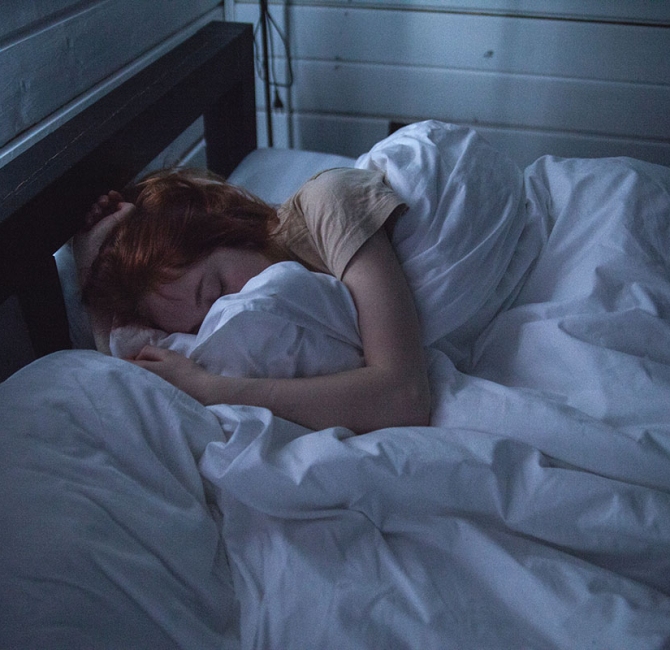Leaving artificial light on while sleeping at night may be a risk factor for obesity and weight gain in women, a large, prospective cohort study found.
Any kind of artificial light exposure at night was correlated with a 19% higher relative risk of incident obesity compared with no artificial light exposure, reported Dale Sandler, PhD, of the National Institutes of Health in Research Triangle Park, North Carolina, and colleagues in JAMA Internal Medicine.
Sleeping with a light or television on was linked to a 17% greater relative risk of gaining at least 5 kg (11 lbs) and a 33% greater relative risk of incident obesity among women.
Bigger “doses” of light (from a nightlight up to a light or TV on in the room) showed greater risks for weight gain and becoming overweight or obese.
These statistically significant risks were independent of sleep quality and duration or other factors affecting poor sleep.
The few prior studies done in the general population have found a positive association between artificial light at night while sleeping and obesity or weight gain, but had small samples, couldn’t rule out reverse causality, and lacked information on potential mediators or important founders like diet, sleep characteristics, and physical activity.
While the paper “suggests that artificial light exposure at night should be addressed in obesity prevention discussions,” Sandler cautioned it’s premature to make medical recommendations based on this study.
“Light at night is related to a whole constellation of other factors related to poor sleep, and we know sleep is actually fundamental,” Sandler said. “We as a society do not pay a whole lot of attention to getting a good nights sleep, but it’s becoming increasingly evident it is important for a whole range of health endpoints.”
“So this is further evidence for physicians to ask about how well people sleep, and how many hours of sleep they get, and to recommend to get a really good night’s sleep, they should not be sleeping in front of a television or with the lights on,” she continued.
The researchers evaluated 43,722 women, with a mean age of 55.4 years, from the Sister Study in Puerto Rico and all 50 states over a mean follow-up of 5.7 years. The women were ages 35 to 74 years with no prior history of cardiovascular disease or cancer who were not daytime sleepers, shift workers, or pregnant at baseline.
Participants self-reported their BMI at the time of enrollment and at follow-up, which was a limitation along with self-reporting of artificial light exposure at night. Also, the study consisted mainly of women from generally high socioeconomic status, which limited the generalizability of the results.
“Further prospective and interventional studies could help elucidate this association and clarify whether lowering exposure to artificial light at night while sleeping can promote obesity prevention,” the researchers concluded.



